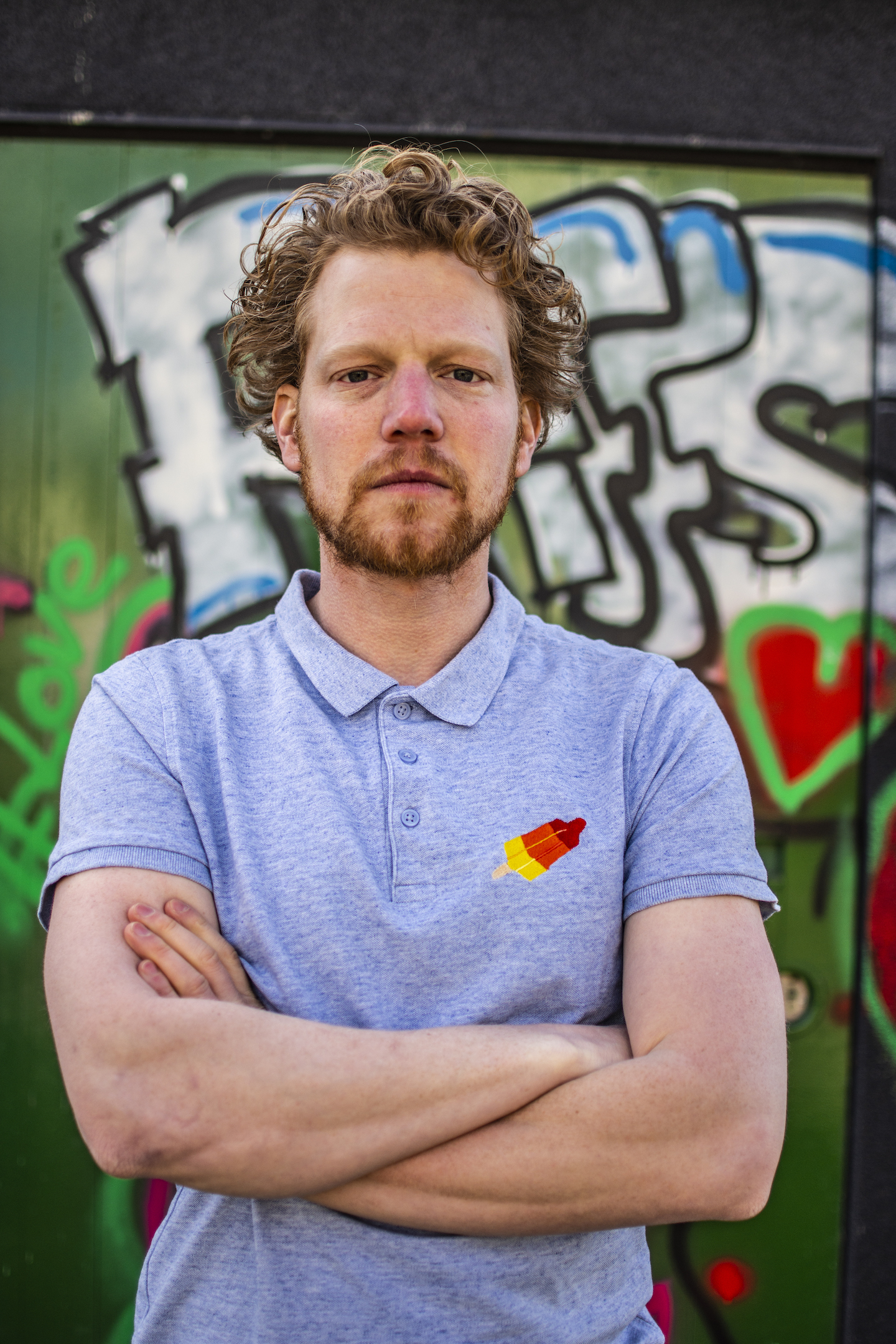This article originally appeared on VICE Netherlands.
A few weeks back, I felt my eyesight getting hazier. I went to the optometrist for an eye test and, weirdly, the results indicated that my prescription had decreased, so I’d need weaker glasses. I was as confused as my doctor, but after a bit of looking into this, it was determined that testosterone was behind the changes.
Videos by VICE
As strange as it might seem, hormone levels really can have an impact on an individual’s eyesight. In cis men, this is largely because age can slow down the rate at which our body produces androgens, a group of male sex hormones including testosterone. One knock-on effect of this reduction is blurry eyesight.
For the past two months I’ve been using testosterone gel. Usually applied to the lower abdomen and absorbed through the skin, these gels top up my T levels and are prescribed by doctors.
Prior to using it, I read up on possible side effects that come with the use of gels like AndroGel: increased muscle mass, shortened temper, or a deeper voice. I’ve also discovered some other personal effects to add to that list: the structure of my hair has changed, I swear my feet have grown by a few millimetres, and, happily, my eyesight has improved.
People use testosterone gel and clinically administered testosterone injections for a variety of reasons. Everyone reacts very differently to the treatment, and since there is very little in the way of public discussion about the topic, those side effects can be surprising. We asked gel users – cis, trans and intersex – about their experiences with the drug and all of the remarkable things that come with it.

‘It doesn’t take much for me to start crying: put “Bambi” on and the tears will be streaming down my face’
I was diagnosed with HIV in 1999 and first put on medication in 2001. After a few years on the drugs, I became increasingly fatigued. It started with coming home on Friday evening and then spending most of the weekend sleeping. As time went by, I’d already be so tired on Wednesday that I had to drag myself to work for the rest of the week. This is because the medication I was on blocks your energy supply at a cellular level.
I had contacts in San Francisco at the time, and someone there pointed out a study to me in which anabolic steroids [artificial testosterone] were used together with HIV medication to fight that fatigue. My internist approved the treatment and I have been using testosterone ever since. I do it in 12 week blocks – I apply the gel for three months and then have the next three off.
The testosterone has given me enough energy to be able to do things again. Another thing that struck me is that I need to be careful with my emotions while applying the gel. It doesn’t take much for me to start crying: put Bambi on and the tears will be streaming down my face. Fortunately, I’m not prone to depression, but I can at times wallow in self-pity. I really need to actively get myself together in moments like that. Testosterone is also the reason that I can’t allow myself to get too angry: I tend to oversimplify things and become rude. If I start to speak softly, that means I’m really angry. Then I have to restrain myself.
I also notice a difference in my sexuality. During the last two weeks without testosterone, when the fatigue starts to kick in, I’m really looking forward to applying the gel again. – Hans Verhoeven, 58, is a self-declared rainbow activist and owns the online store Gays & Gadgets

‘The first six months of using the gel really felt like being 12 all over again. I even started listening to the music I liked back then!’
I’ve been applying testosterone gel for about seven years now. Back then, trans healthcare looked very different from the way it does today. The gender clinic I was a patient at expected me to start using gel, and I thought, ‘OK, let’s do it.’ A decade ago it was really important, as a trans man, that you were able to convey as much masculinity as possible. I don’t think that way anymore, though.
I’m still taking testosterone, it has had some very welcome effects. I don’t get my period anymore, which is great because that was really hard for me to live with. My voice dropped, and I think my beard looks cool. If I had to start the process again, I’d still use testosterone gel, but as far as I’m concerned it isn’t an absolute must.
In fact, the first six months of using the gel really felt like being 12 all over again. Everything sucked. I even started listening to the music I liked back then! Essentially you go into a kind of second puberty: You have mood swings, you’re constantly hungry and always horny. I’d wake up and the middle of the night and nudge my girlfriend and tell her I was in the mood. She’d just send me to the couch and tell me to take care of it myself. Also, my fat distribution changed – all my fat moved away from my hips and ass to my belly.
Physically, I feel like I won the genetic lottery. Any man wanting to look more masculine would kill to have my beard. I was quite hairy anyway, but it took time to get used to it. Eating can be a challenge now. I can’t eat yoghurt anymore and soup is impossible to get out of my beard. I had to change how I performed oral sex, too. – Bappie Kortram, 30, is a YouTuber and podcaster

‘I became hairy and my penis started to grow. Suddenly, I was part of the group’
When I was 16, I looked 12. I didn’t hit puberty. I had male genitalia but I didn’t get secondary sex characteristics like a deeper voice. After undergoing a few tests, it turned out I had Kallmann syndrome, meaning the substance that helps with the production of testosterone isn’t present in my body.
The doctors put me on testosterone, administered by injection. I’d have these huge peaks after those injections. I’d get them done on Fridays because I played football on Saturdays and the testosterone made me a lot faster and stronger. And after two months on them, my voice started to drop and it gave me those other secondary sex characteristics: I became hairy and my penis started to grow. Suddenly, I was part of the group, and that can be so important.
In general, things were going too fast so I was eventually put on testosterone gel rather than getting the injections. Not so long ago, my internist prescribed me a lower dose of [injected] testosterone. My reaction was, ‘Oh no, I’m finally able to keep up with the men in the gym!’ I didn’t want to give up that feeling of pride. Fortunately, she was very understanding and assured me that I’d still be able to keep up with the other guys.
Over the course of my life, I’ve thought a lot about what masculinity is. I can’t really pinpoint when I feel like a man because so many of those characteristics are social constructs. But I cry a lot less now when I’m on testosterone. – Pepijn Schoneveld, 36, is an actor, comedian and podcaster
More
From VICE
-

-

Screenshot: Rocksteady Studios, Pandemic -

Anita Nicholson/Getty Images -

Illustration by Reesa.
